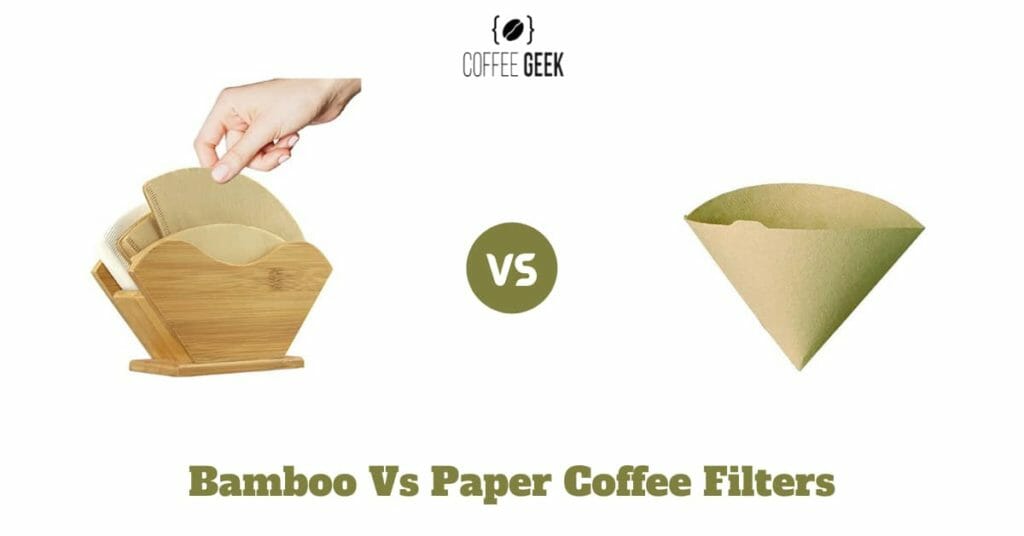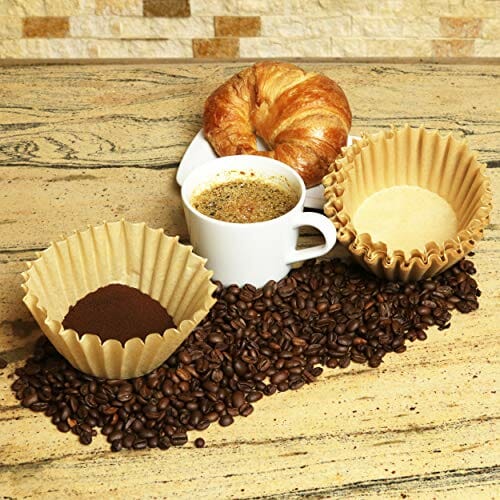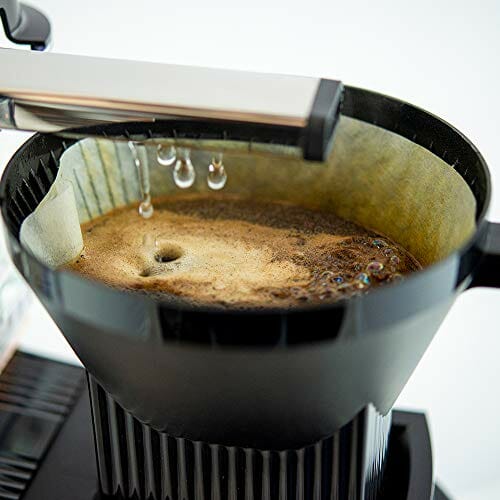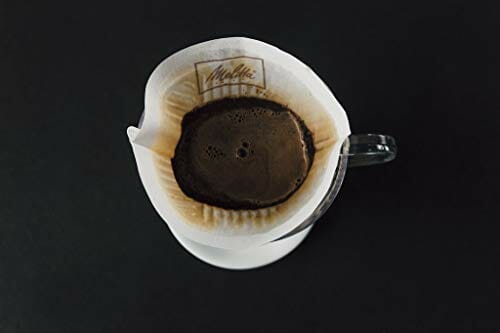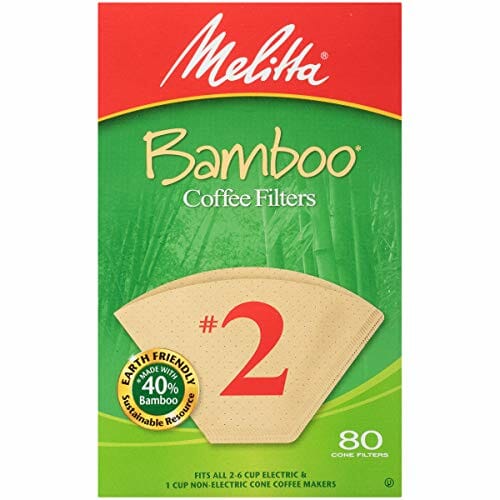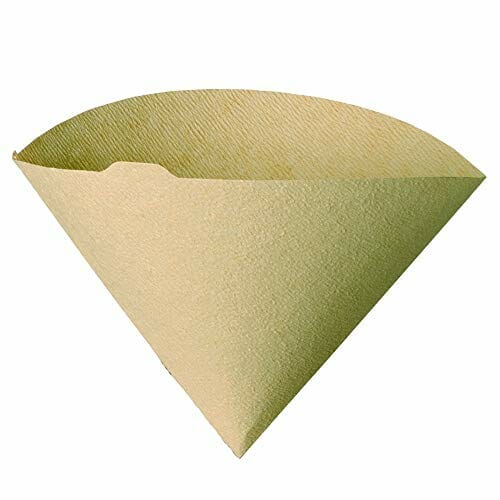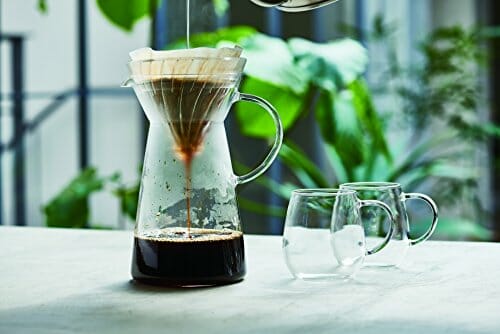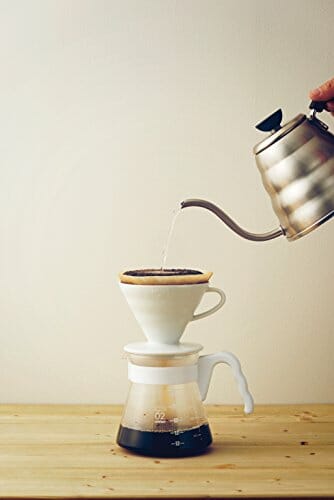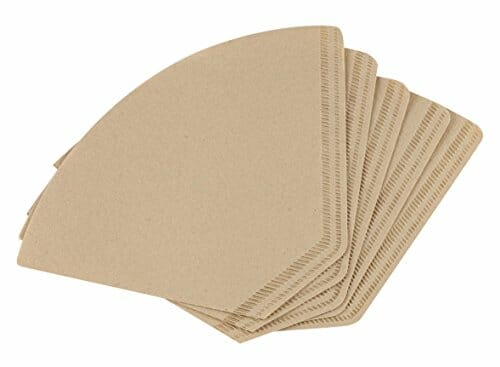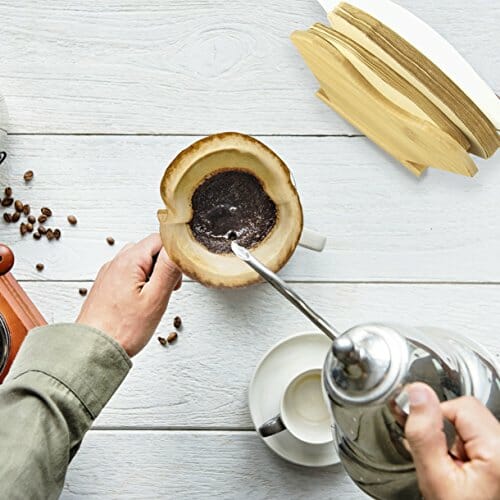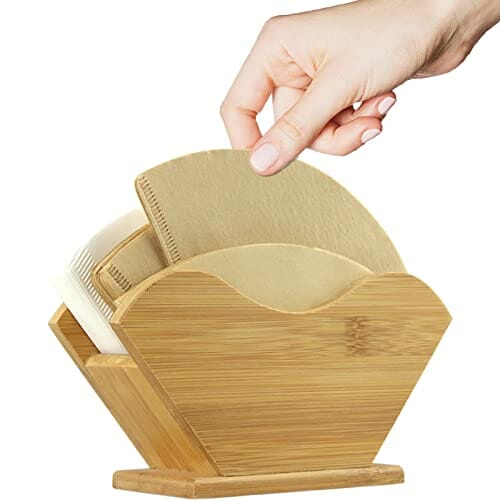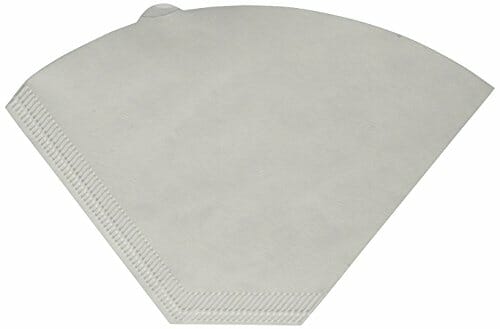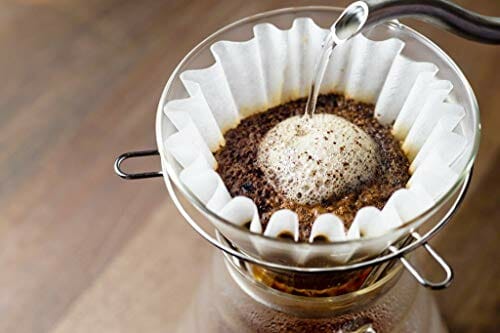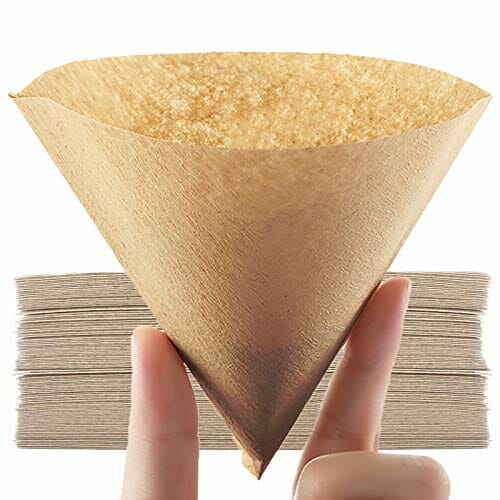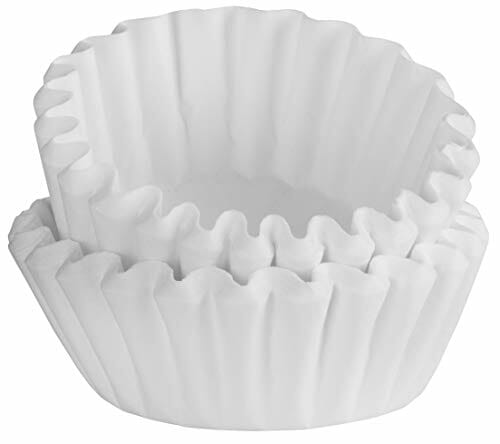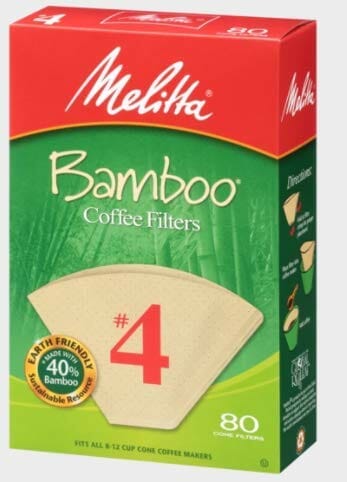In the past, choosing the perfect paper filter for your drip coffee maker was simple.
It was common to go to the local grocery store and purchase a set of 100 pieces at something similar to 99 cents.
The modern world of coffee is more complex now, and filters are no different. As a coffee enthusiast, I’m not trying to create a complicated situation by design.
But, it would help if you recognized that the filtering process and the material used has a critical impact on the taste
If you’ve only recently found them, you’re likely to have questions. Are they able to let more coffee oils get through? Bamboo vs paper coffee filters?
I’ll be answering these queries in the article below.
Different Types Of Paper Filters
Filter paper typically comes in white or natural brown.
Melitta cone filters are also made of bamboo paper, a renewable source.
Before getting into the debate about bamboo vs. paper coffee filters, it is vital to know that not all paper filters perform precisely the same.
Avoid cheap filters! Not only filters made of cheaper paper can alter the flavor of your coffee through transferring foreign flavors or via either under or over-extraction.
Another drawback of cheap paper can create a mess, either breaking down or clogging.
White Filters
The majority of paper in its natural form is brown.
To change it to white, it needs to be processed.
A lot of filter paper is bleached using Chlorine to get its white color.
Melitta cone coffee filters are Chlorine free.
Natural Brown Filters
Natural brown filters cannot be altered to produce whiter colors. When using quality filter paper such as those produced from Melitta, there is no distinction in taste between white and natural brown or bamboo. It’s a matter of your personal preference.
Bamboo Filters
The bamboo coffee filter is 40% bamboo and is infused with patented flavor enhancement technology.
Bamboo is a renewable source that regenerates itself after it has been cut.
What Are Paper Coffee Filters?
The paper filters are the most commonly used and most effective process for brewed coffee with the drip method.
Paper filters perform the best job of eliminating particulates and effectively trap bitter sediments to make smoother, less bitter cups of coffee.
Additionally, paper filters permit you to use any grind, whereas permanent filters require coarser grinds.
Paper Filters Benefits
Simple Clean-Up
After being utilized, paper filters are easy to remove from your coffee maker and later disposed of.
Permanent filters should be thoroughly washed at the end of each use.
Clean Filters Sanitary
Made of paper are only used once. Permanent filters are often employed for a long time and can create build-up following repeated use.
Potentially Healthier
Studies have revealed that coffee filters made of paper can play an essential role in removing the cholesterol-raising element of coffee. On the other hand, permanent filters can filter cholesterol-raising oils out of the cup.
Environmentally Friendly
Paper filters are entirely biodegradable, whereas permanent filters aren’t.
Are Paper Coffee Filters Healthier?
The people who consumed unfiltered one to four cups of coffee daily reported the lowest mortality rates.
The people who drank filtered coffee had a 15 percent lower risk of dying prematurely and a 12% lower risk of developing cardiovascular disease in men—a decrease of 20% in the risk of cardiovascular disease among women.
In a study published by the European Journal of Preventative Cardiology, people who drink filter coffee have a lower chance of death due to stroke, cardiovascular heart disease, stroke, or ischemic heart disease.
The study suggests that this could be due to unfiltered coffee having a significant amount of cafestol and kahweol, which could increase the level of triglyceride and levels of LDL (which is the “good” cholesterol).
What Kind of Coffee Filter Is Healthiest?
If you think about the filtration capabilities for both filters, you’ll realize that both filters come with distinct dripping rates.
However, when you consider the flavor and taste of drip coffee, I’d definitely award more points to the paper coffee filters.
Bamboo Vs. Paper Coffee Filters
Filters for coffee made of paper aid in producing coffee with delicious texture and flavor compared to bamboo filters.
If you look at the health benefits associated with making use of both filters, then I’d suggest that both are healthy for you.
According to a Harvard study using coffee filters made of paper is strongly advised.
The primary reason for this is the capability of filters made of paper to remove cafestol in the coffee while it is being filtered.
Cafestol is the main ingredient responsible for stimulating LDL cholesterol levels in the body.
Thus by using a coffee filter made of paper, you will be able to eliminate cholesterol-raising factors within your body.
From this angle, I agree that any filter made from paper, whether made of bamboo or disposable materials, is healthy and safe.
Paper filters have come under some criticism because the bleached white coffee filters can release dioxin into the coffee drink.
Dioxin is a byproduct from the bleaching process that chemically produces and is a risk to consume.
What are Bamboo Filters?
There are many kinds of coffee filters made from paper. Bamboo filters are the most eco-friendly option.
Bamboo coffee filters do not provide a unique brew compared to other high-quality filters.
However, bamboo filters are more eco-sustainable because bamboo is a self-sustaining natural source.
Paper filters provide a richer more flavorful coffee beverage.
The Benefits of Utilizing Bamboo Coffee Filters
You should choose bamboo coffee filters over the usual filter paper because it is renewable and biodegradable.
Bamboo trees are growing much quicker than traditional trees, which is the basis for paper production.
Due to the growing demand for paper worldwide, millions of trees are removed every year.
We can stop this catastrophe sweeping the globe and protect our planet by using more bamboo-based products.
Bamboo coffee filters are eco-green and are biodegradable in design.
After you have used this filter, you can make use of it for garden composting use.
Are Bamboo Coffee Filters Compostable?
You may be speculating if there are additional benefits to bamboo coffee filters that make them a superior alternative.
Filters for paper coffee are often tricky for composting in gardens because of the presence of chemicals that are present in them.
Then, is a bamboo coffee filter the best choice instead of paper coffee filters?
I believe that bamboo filters must be given more prominence in our lives than filter paper.
In light of the next generation, it is crucial to preserve our forests and begin using more environmentally sustainable options and long-term solutions.
The best option is bamboo, not disposable paper, in my opinion.
Bamboo vs. Paper Coffee Filters Differences
Paper filters have the advantage of being environmentally friendly
Most paper coffee filters are biodegradable and recyclable, making them more environmentally friendly. Furthermore, they are more affordable.
Whereas bamboo coffee filters are more sustainable, paper filters are not.
Buying bamboo filters is environmentally friendly and helps the environment.
You can recycle the frying oil used to make the filters, and they can be reused as plates.
You can even use them to cover dishes in the microwave and to clean windows and mirrors.
Shape of Filters
Your coffee maker could dictate the design of the filter you should use, but there are usually many choices to pick from, which can affect the taste of your coffee.
There are two distinct shapes of filter holders:
Cone Vs. Basket
Cone-shaped holders (round top slowly tapering down until the lowest point) and Basket shaped holder (circular filter/holder with an elongated bottom).
In general, cone-shaped filters are suggested as the shape guarantees maximum coffee extraction and optimal coffee saturation compared to basket-shaped filters and holders.
Cone Filters
Cone coffee filters are available in various sizes identified by a specific number.
These numbers correspond to the following kinds of coffeemakers.
For example, Size Filter #1: It fits 1 cup cone makers that use electric technology.
Basket Filters
Generally speaking, the Kalita Wave basket filters typically are compatible with all six to twelve-cup coffee makers with baskets.
Also, you can find “Junior” size baskets designed for four to six cups coffeemakers.
FAQs
Do Coffee Filters alter the Taste of Coffee?
The choice of the filter can result in subtle distinctions in the way that the coffee you make tastes.
For example, one of the primary coffee flavors differences results from the variations in the straining capacity of different filters.
How do I choose the Top Bamboo Coffee Filters to Use?
If you are looking for an excellent and durable bamboo filter, then my suggestion is to select any of the sizes available in Melitta bamboo coffee filters

